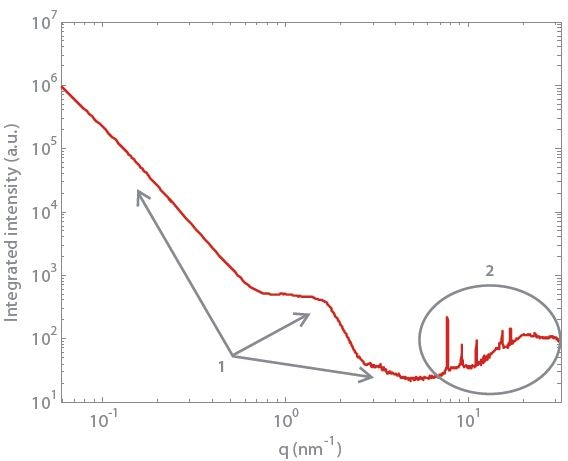Many personal care products comprise of concentrated surfactant systems featuring a multi-phasic microstructure. Many personal care products comprise of concentrated surfactant systems featuring a multi-phasic microstructure. Knowledge and understanding of this structure are highly impacting for innovative formulation to facilitate the development of new product features.
The study of the stability of the formulation throughout storage, or how the structure changes during usage, for example, diluting with water, is also crucial to guarantee that the quality of the end product is good.
For establishing the organization of the associated micellar formulation on a large range of length scales, as a function of the environment, X-ray scattering is an indispensable method. This method also complements the Cryo-TEM and NMR greatly.
Measurements and Results
Procter & Gamble's Head and Shoulders "Classic Clean" shampoo is the sample that was studied. Simultaneous SAXS/WAXS measurements were carried out under vacuum at room temperature.
The same sample portion is illuminated during both WAXS and SAXS data collection because of the single-shot measurement, and precise data collection is acquired. Acquisition time is also shortened. The resulting 1D curve is shown in Figure 1.

Figure 1. 1D SAXS/WAXS curve from Head & Shoulders Classic Clean Shampoo sample. Exposure time = 600 s.
The SAXS/WAXS pattern acquired presents a structure made of:
- A crystalline phase defined by clearly characterized peak positions from WAXS measurements, and a sponge phase.
- A wormlike micelle, shown by a form factor with two observed orders corresponding to the cross-section signature, and a slope change at smaller q- values related to the characteristic dimension of 38.31 nm.
Conclusion
SAXS/WAXS measurements were performed on the Head and Shoulders Shampoo from Procter & Gamble and its inner structure was examined. By deploying an integrated temperature control stage, further in-situ sample investigation can be carried out using the Nano-inXider.
The SAXS/WAXS single-shot measurement allows a proper temperature investigation without the need for sample replacement as a hysteresis phenomenon could require in the case of sequential SAXS and WAXS measurements.
Ahead of innovation_Xenocs SWAXS Module

This information has been sourced, reviewed and adapted from materials provided by Xenocs.
For more information on this source, please visit Xenocs.